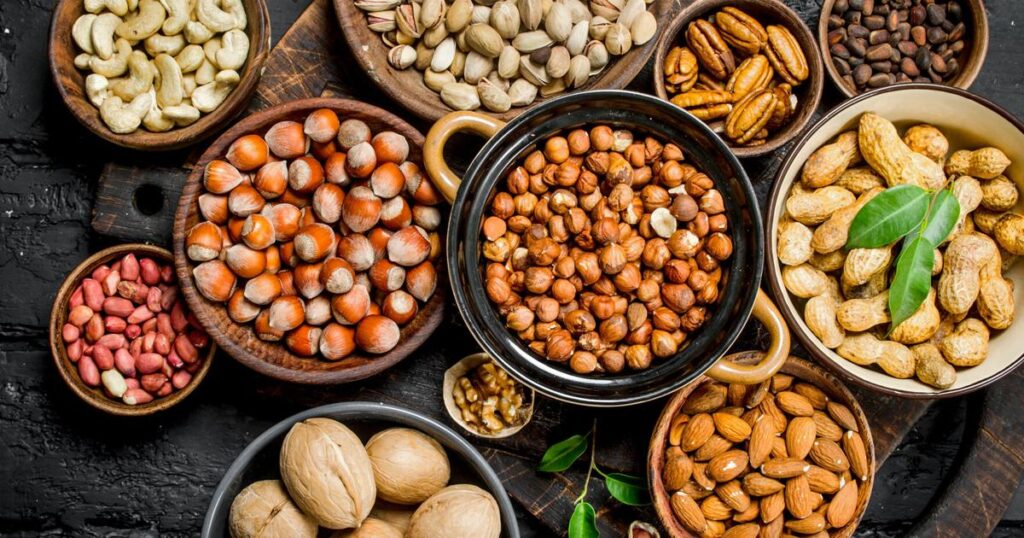
There’s something undeniably satisfying about spreading creamy nut butter on warm toast or blending it into your morning smoothie. In recent years, nut butters have gone from simple pantry staples to gourmet superfoods. Whether you’re fueling your workout, preparing a snack for your child, or just looking for something delicious and healthy, nut butters are a go-to choice.
But with so many options lining the shelves, the question arises—which nut butter is the best? Almond, peanut, or cashew? Each has its unique taste, texture, nutritional perks, and loyal fan base. In this post, we’ll compare these three contenders side-by-side, helping you make the right choice for your tastebuds, lifestyle, and values. And yes, for those exploring options for nuts in Karachi, we’ll touch on where to source the best ingredients for homemade blends too.
Peanut Butter: The Classic Favorite
Affordable, Familiar, and Packed with Protein
Let’s start with the crowd favorite—peanut butter. It’s been a household staple for generations, loved for its creamy (or crunchy!) texture and bold, salty-sweet flavor. Made from ground roasted peanuts, it’s often the most accessible and affordable nut butter on the market.
From a nutrition standpoint, peanut butter offers a solid 8 grams of protein per two tablespoons, along with heart-healthy monounsaturated fats, niacin, and vitamin E. It’s ideal for muscle recovery, energy boosts, and satisfying those midday cravings. However, it’s worth checking labels, as many commercial peanut butters contain added sugars, oils, and preservatives.
In Karachi, peanut butter is widely available at grocery stores, but for a cleaner version, you can even make your own using roasted peanuts sourced from local vendors offering nuts in Karachi.
Almond Butter: The Nutrient-Dense Contender
Rich in Vitamins, Fiber, and Healthy Fats
Almond butter has soared in popularity over the past decade, especially among health-conscious consumers. With a more delicate, nutty taste and slightly grittier texture, it’s perfect for spreading on fruits, swirling into oatmeal, or blending into protein shakes.
Nutritionally, almond butter shines with more fiber, calcium, and vitamin E than both peanut and cashew butters. It also contains magnesium, iron, and powerful antioxidants. Although it’s higher in fat, most of it comes from the heart-friendly kind.
That said, almond butter tends to be pricier. If you’re looking to make your own, seek out raw or roasted almonds from premium nuts in Karachi retailers. Making it at home lets you skip the additives and control the flavor exactly how you like it.
Cashew Butter: The Creamy Indulgence
Smooth, Subtle, and Naturally Sweet
Cashew butter may not be as mainstream as its peanut and almond cousins, but it’s quickly earning a reputation for being the creamiest and most luxurious of the bunch. With a subtle, slightly sweet flavor, it works beautifully in both sweet and savory dishes—think sauces, desserts, or vegan cheese alternatives.
Cashews are lower in protein than peanuts and almonds, offering around 5 grams per serving. However, they’re high in copper, zinc, and magnesium, making cashew butter a great choice for supporting immune function and energy metabolism.
If you’re a fan of smooth textures and a mild, buttery taste, cashew butter might become your new favorite. Premium cashews in Karachi can be blended into ultra-creamy butter with just a pinch of salt and a drizzle of oil, making it an elegant addition to your kitchen.
Nutritional Breakdown: Side-by-Side Comparison
| Nutrient (Per 2 tbsp) | Peanut Butter | Almond Butter | Cashew Butter |
|---|---|---|---|
| Calories | 190 | 200 | 180 |
| Protein (g) | 8 | 7 | 5 |
| Total Fat (g) | 16 | 18 | 14 |
| Fiber (g) | 2 | 3 | 1 |
| Vitamin E (%) | 15 | 45 | 1 |
| Magnesium (mg) | 57 | 80 | 82 |
As you can see, almond butter wins in vitamin E and fiber, while peanut butter leads in protein. Cashew butter, meanwhile, delivers a creamy texture with solid mineral content—making each a good option depending on your nutritional priorities.
Best Uses for Each Nut Butter
Choose Based on Taste and Purpose
If you’re looking for a post-workout protein boost, peanut butter is your friend. It pairs well with bananas, toast, and smoothies, providing satiety and recovery fuel. For those on high-fiber or low-carb diets, almond butter is ideal—it keeps you full longer and offers a higher dose of antioxidants and nutrients.
Cashew butter, thanks to its creamy, luxurious consistency, works wonders in baking, raw desserts, and vegan recipes. It blends easily and has a more neutral flavor, allowing it to adapt to both sweet and savory dishes effortlessly.
When shopping for nuts in Karachi to make these butters, check that they’re fresh, free from added oils or salt, and preferably raw (for full nutritional value).
Homemade vs. Store-Bought: What’s Better?
Control, Cost, and Customization
While store-bought nut butters are convenient, they often come with added sugars, hydrogenated oils, or preservatives. Making your own allows full control over ingredients, consistency, and flavor. It’s also more affordable in the long run, especially when you buy nuts in Karachi in bulk.
To make homemade nut butter, simply roast the nuts, let them cool slightly, and blend in a high-speed processor until smooth. Add a touch of salt or a drop of honey for flavor if desired. Store it in a glass jar in the fridge, and you’ll always have a fresh, healthy spread on hand.
Final Verdict: Which Nut Butter Is Best?
It Depends on Your Needs and Preferences
So—who wins the showdown? Truthfully, it’s a three-way tie. Each nut butter has its strengths:
-
Peanut butter is the most accessible and highest in protein.
-
Almond butter is the most nutrient-dense and fiber-rich.
-
Cashew butter is the creamiest and best for recipes that need a subtle base.
Your best choice depends on your dietary needs, flavor preferences, and how you plan to use it. Why not keep all three in your kitchen and rotate them as needed? With high-quality nuts in Karachi, you can experiment and enjoy the best of all worlds.







